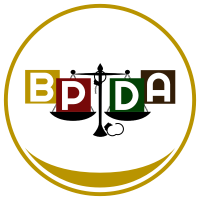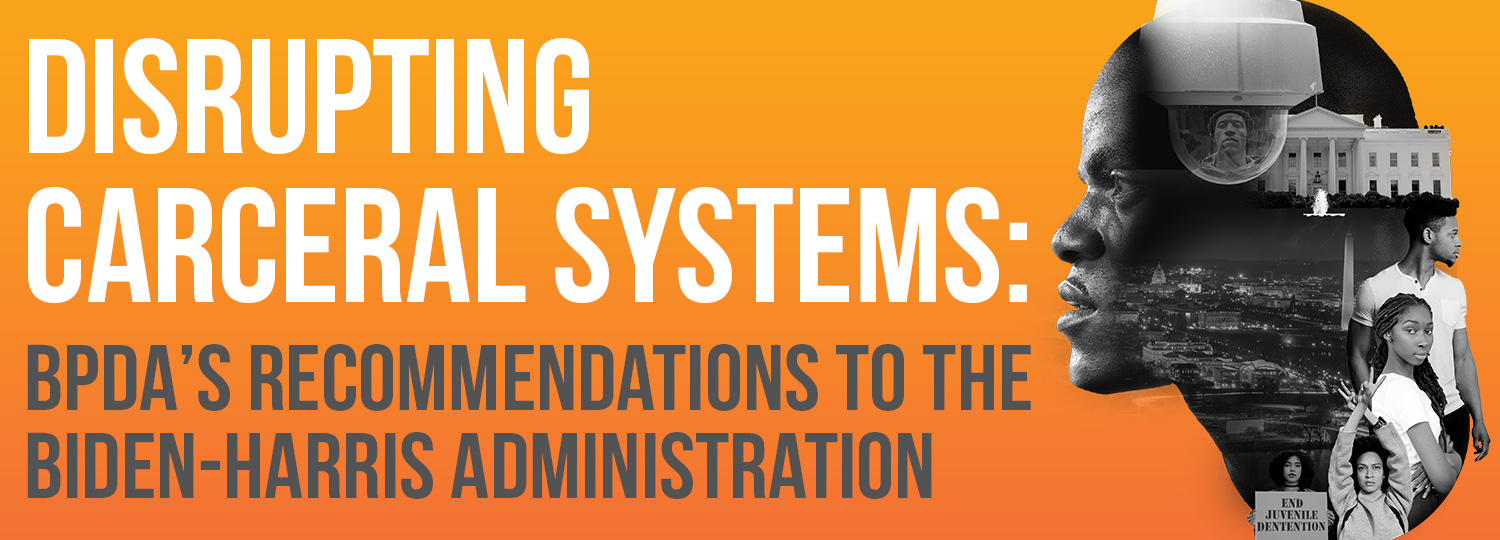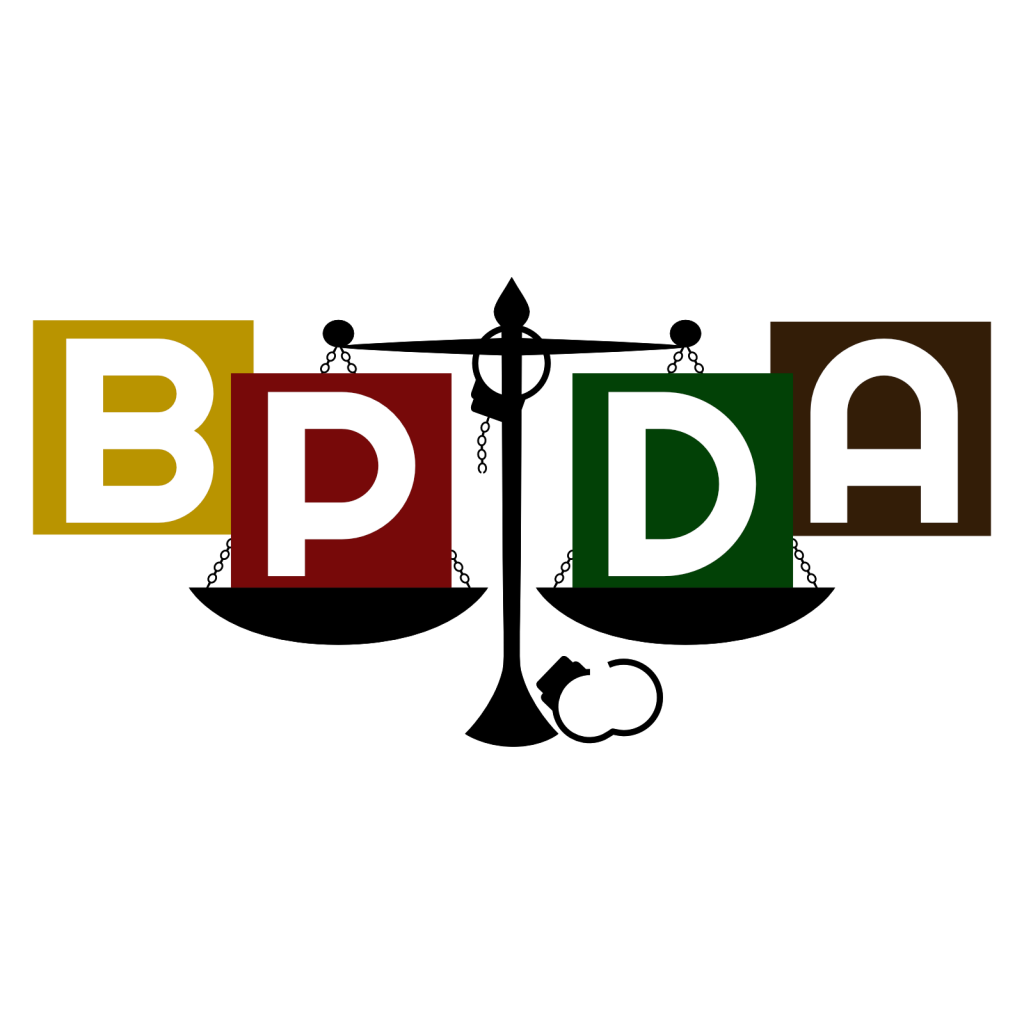About the Report
“Disrupting Carceral Systems: BPDA’s Recommendations to the Biden-Harris Administration” provides the Black public defender perspective on carceral systems that harm Black communities and outlines federal legislation, regulation, and enforcement strategies to the Biden-Harris Administration. BPDA also addresses the long-standing harms caused by policing and prosecutorial and judicial discretion.
The paper takes a deep dive into seven carceral systems that holistic defenders work within, and identifies strategies the Biden-Harris Administration should implement to disrupt these systems. Black defenders have both lived experience and professional knowledge that informs their work, and they offer a unique expertise that must be heard. BPDA draws attention to the following carceral systems: Juvenile Dependency, Juvenile Delinquency, Education, Immigration, Incarceration, Reentry, and Housing.
This report is a product of collective thoughts from BPDA members, allies, and experts, with supplemental research by BPDA leadership and staff. BPDA held four listening sessions, during which Black defenders shared their thoughts on the identified carceral systems, as well as a roundtable discussion with allies.
Key Carceral Systems and Recommendations:
- Dependency – Harms: Black children disproportionately are placed in foster care, a pipeline to the criminal legal system.
Disruptions: Support the repeal of the Adoption and Safe Families Act (ASFA) and the Child Abuse Prevention Treatment Act (CAPTA), which have led more to harmful family separations than to reunification and support. Support initiatives that fund states’ support of prevention services, Prioritize dependency over delinquency. - Delinquency – Harms: Black children are grossly disproportionately arrested, confined, and tried in adult court.
Disruptions: Abolish juvenile confinement, abolish of transfers of children to adult court and abolish of juvenile life without parole sentences. apply evidence-based approaches to reduce racial and ethnic disparities (RED). - Education – Harms: Black students are disproportionately arrested. Confined students have little access to special education. Incarcerated adults have almost no access to postsecondary education programs.
Disruptions: Defund and remove police from schools, Provide special education and related services to youth in custody. Ensure credit transfer, credit-bearing education, and high school graduation Fasttrack availability of Pell Grants in correctional facilities. - Immigration – Harms: Black immigrants are disproportionately arrested and deported on criminal grounds compared to all immigrants.
Disruptions: Support the repeal of the “1996 immigration laws” that make criminal contact the deciding factor for immigration status, Support the New Way Forward Act. Defund of ICE and repurpose funding to support non-carceral alternatives to detention. - Incarceration – Harms: Black people are grossly disproportionately incarcerated in the U.S. due to racist policies and practices of the criminal legal system.
Disruptions: Work to reverse the effects of the Violent Crime Control Act and Law Enforcement Act of 1994 and other laws that turbo-charged mass incarceration. Eliminate mandatory minimums, death penalty, incarceration for technical violations. money bail, solitary confinement. Defund police and corrections to fund alternatives to detention and incarceration. - Reentry – Harms: Over 70 million people have criminal records, and they face more than 44,000 collateral consequences.
Disruptions: Support automatic sealing pf criminal records, Champion “Ban the Box” to disrupt discrimination Support programs run by returning residents. Restore voting rights for returning residents. - Housing – Harms: People who are unhoused are more likely to be arrested; and formerly incarcerated are more likely to be homeless.
Disruptions: Enforce and strengthen the Fair Housing Act. Champion the re-introduction of the Fair Chance at Housing Act of 2019. Increase affordable housing. Support families housing returning residents. Challenge “quality of life” laws that criminalize homelessness.


